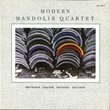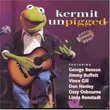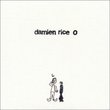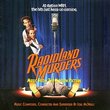| All Artists: George Frederick Handel, John Eliot Gardiner, English Baroque Soloists, Alastair Miles, Anne Sofie von Otter, Della Jones, Derek Lee Ragin, Donna Brown, George Mosley, Jonathan Peter Kenny, Julian Clarkson, Michael Chance Title: Handel: Agrippina Members Wishing: 1 Total Copies: 0 Label: Decca Original Release Date: 1/1/2007 Re-Release Date: 4/10/2007 Genre: Classical Styles: Opera & Classical Vocal, Historical Periods, Baroque (c.1600-1750) Number of Discs: 3 SwapaCD Credits: 3 UPC: 028947582854 |
Search - George Frederick Handel, John Eliot Gardiner, English Baroque Soloists :: Handel: Agrippina
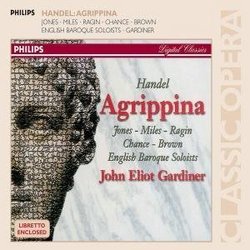 | George Frederick Handel, John Eliot Gardiner, English Baroque Soloists Handel: Agrippina Genre: Classical
3 CD SET GARDINER/ENGLISH BAROQUE SOLOI |
Larger Image |
CD DetailsSynopsis
Product Description 3 CD SET GARDINER/ENGLISH BAROQUE SOLOI Similarly Requested CDs
|
CD ReviewsA Classic Marcolorenzo | Italy | 09/18/2007 (5 out of 5 stars) "A desert island choice. Early Handel opera written for the opera house in Venice at the end of Handel's Italian trip. Soloists are superb, as is the conducting and orchestra. A treasure house of melody Handel later borrowed from in later operas. A classic, essential choice for any Handel collection. The McGegan version, now out of print, for Harmonia Mundi is also very good.Handel - Agrippina / Bradshaw, Saffer, Minter, W. Hill, Isherwood, Popken, M. Dean, Banditelli, Szílágyí, Capella Savaria, McGegan And the DVDHandel - Agrippina / Daniels, Kuebler, Hall, von Kannen, Ostman, Schwetzingen Opera Festival is wonderful, fine singing, simple staging and with splendid classical scenography." A voice teacher and early music fan George Peabody | Planet Earth | 01/08/2008 (5 out of 5 stars) "GARDINER AND FORCES PRESENT A SUPERB INTERPRETATION AND PERFORMANCE OF THIS HANDEL OPERA!
On 26 December 1709 'Agrippina', Handel's first dramatic masterpiece, was produced in Venice, the homeland of opera. It was a triumph. The theater echoed shouts of 'Viva il caro Sassone' and the opera received no less than twenty-seven performances. The author of the libretto was Cardinal Vincenzo Grimani, a distinguished diplomat and Viceroy of Naples. Whether deliberately or by happy accident,he was able for the first time to release Handel's extraordinary insight into manifold subtleties of human nature. His libretto displays an uncanny sensitivity to human nature that contains: intimate irony, serious emotions portrayed and immediately accessible comic situations, rather than heroic declamatory high drama. So 'Agrippina' permits,indeed encourages, the frailties, idocyncracies and amorality of the principal characters to reveal themselves: Gardiner's more restrained approach assists and underlines this. Simply put, Agrippina plots the downfall of Claudius (the emperor) in order for her son, Nero, to become Emperor in his place. It would be easy to condemn her manipulations and lust for power, but Handel's dispassionate and non-judgemental observation makes us more likely to care about the fates of each character. Thus, there is humanity as the end result: that nothing, especially evil,is simple. Gardiner's forces have understood this. With a single exception the characters, judged by their words and deeds, are morally worthless, but not all are without redeeming features. Agrippina, for all her duplicity and devious mechinations, is determined to secure the succession of her son. Poppea has the merit of courage, and she genuinely loves Ortho, but given her past history, is not likely to remain faithful. The exception is Ortho, who saves the emperor's life, and is ill-treated for it, and whose willingness to sacrifice worldly ambition for love, throws the motives of the others into sharp relief. He is indeed one of opera's greatest losers. Della Jones in the role of Agrippina is magnificent! Her voice is able to easily take on the various moods and situations that her character face. She displays flexibility in all her arias, especially those that are at 'break-neck' speed. The voices of Chance and Ragin make a nice contrast: Chance's voice is rich, mellow, filling up his entire body with sound; while Ragin's voice is lighter, flexible prone to using more vibrato and ornaments. There are actually three countertenors in this opera, two mentioned previously and Jonathan Peter Kenny, who makes a fine contribution, both vocally and dramatically. Alastair Miles as Claudius sings with an excellent blend of authority and pathos. Donna Brown convincingly conveys nastiness and insolence and all with her resonant tone quality. Gardiner, as per usual, does an excellent job of interpreting what Handel wanted. Gardiner's forces achieve very well the balance between the idea of belligerant and bitter plotting and the actual mind and behaviours of those who abandon all principles and implement them. And I am impressed by the quality of the nine cast singers; not a weak one among them! Indeed, this entire opera is a marvelous listening experience. Recorded in 1992,early in Gardiner's career." |

 Track Listings (25) - Disc #1
Track Listings (25) - Disc #1